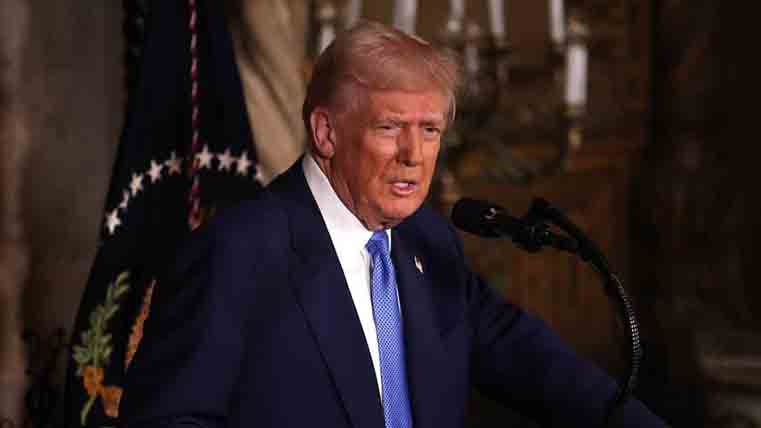Donald Trump’s criticism of Boeing, particularly concerning the Air Force One contract, is rooted in a complex mix of financial, operational, and competitive concerns. The former President has consistently expressed frustration over what he deems as excessive costs associated wiht the new aircraft design and production. His critique does not merely focus on the dollar amounts but also highlights a perceived lack of accountability within large defence contractors. Trump’s comments suggest that he feels Boeing’s management should be more transparent about its pricing strategies and operational efficiencies, labelling the situation as a failure to provide value to the American taxpayer.
Moreover, Trump’s discontent also mirrors a broader skepticism towards established players in the aerospace industry, whom he believes have taken advantage of government contracts for too long. This sentiment resonates with his populist rhetoric, appealing to constituents who view large corporations as out of touch. By challenging Boeing, Trump seeks to position himself as a champion of the common man, prioritizing American interests over those of defense contractors. This stance has implications for the entire defense sector, as it raises questions about procurement processes, pricing mechanisms, and the future of government partnerships with major manufacturers.
Implications for National Security: The Impact of Air Force One on Presidential Mobility
The recent tensions surrounding the Boeing Air Force One deal not only spotlighted financial concerns but also raised critical questions about the implications for national security regarding presidential mobility. as the primary aircraft for the nation’s Commander-in-Chief, Air Force One is more than just a luxurious mode of transport; it is a mobile fortress equipped with advanced technology and security features suited for any crisis. Delays or alterations in its construction could possibly impact the president’s ability to travel securely and efficiently, thereby affecting overall responsiveness to national emergencies. Given the complexities of global threats, any impediment to rapid presidential mobility could hinder real-time decision-making during crises. To find out more, see the coverage at Pinoy Radio UK site.
Furthermore, the efficiency and reliability of Air Force One directly influence diplomatic relations and national standing on the international stage. Should ther be a perceived interruption in service or capability due to contractual disputes, it could leave a significant gap in the United States’ ability to project strength and stability abroad. Key factors that could be affected include:
- Timeliness of diplomatic missions
- Security protocols during international travel
- Perceptions among foreign leaders regarding U.S.reliability
These elements underscore the importance of addressing concerns around the Air Force One program swiftly, ensuring that the integrity of presidential mobility remains intact and that national security interests are safeguarded. The outcome of the Boeing negotiations may, thus, have far-reaching consequences that extend beyond mere budgetary considerations and into the realm of global security dynamics.
 Navigating the Contract Dispute: Recommendations for Future Defense Procurement Strategies
Navigating the Contract Dispute: Recommendations for Future Defense Procurement Strategies
In the landscape of defense procurement, the Air force One deal with Boeing has emerged as a focal point for reconsideration of negotiation strategies. Discontent expressed by influential leaders has highlighted the necessity for enhanced transparency and accountability in contracts.To navigate future disputes effectively, defense agencies must adopt a more collaborative approach with contractors. This means establishing clear communication channels, adopting flexible contract terms, and involving stakeholders early in the procurement process. By fostering an environment of trust and cooperation, agencies can reduce the likelihood of costly disputes and enhance the efficiency of their operations.
Moreover, it is indeed imperative to prioritize rigorous due diligence in contractor selection. Understanding the financial health, past performance, and operational capabilities of potential partners can mitigate risks associated with contract fulfillment. Key recommendations include:
- Implementing regular progress reviews to ensure alignment on project expectations and timelines.
- Incorporating performance-based milestones into contracts to link payments directly to deliverable outcomes.
- Encouraging innovation by allowing contractors versatility in how they achieve set objectives, thus fostering creative solutions.
By taking these strategic steps, defense procurement can evolve, addressing the complexities of modern military needs while ensuring that contracts deliver value for taxpayer dollars.
 strengthening Relationships: how Boeing Could Rebuild Trust with the Trump Administration
strengthening Relationships: how Boeing Could Rebuild Trust with the Trump Administration
Considering recent tensions with the Trump administration, Boeing faces a critical juncture in its approach to rebuilding trust and strengthening its relationship with the federal government. One key strategy could involve transparent communication and a commitment to open dialog. By proactively addressing the concerns about the Air Force One deal, Boeing could demonstrate its willingness to collaborate directly with the Trump administration, ensuring that both sides have a clear understanding of the contract’s specifications and implications. This includes providing detailed cost breakdowns and delivery timelines, allowing for an informed discourse around budgeting and expectations.
Moreover, Boeing should consider fostering closer ties through strategic partnerships and community engagement initiatives. By showcasing its dedication to american manufacturing and job creation, the company can emphasize its role as a vital player in the national defense landscape. Initiatives such as investing in local economies,supporting STEM education,and enhancing workforce progress programs could serve to align Boeing’s interests with those of the Trump administration. Additionally, engaging in public forums and discussions about the future of aerospace in the U.S. can enhance Boeing’s visibility and reputation as a partner committed to the nation’s security and economic prosperity.
